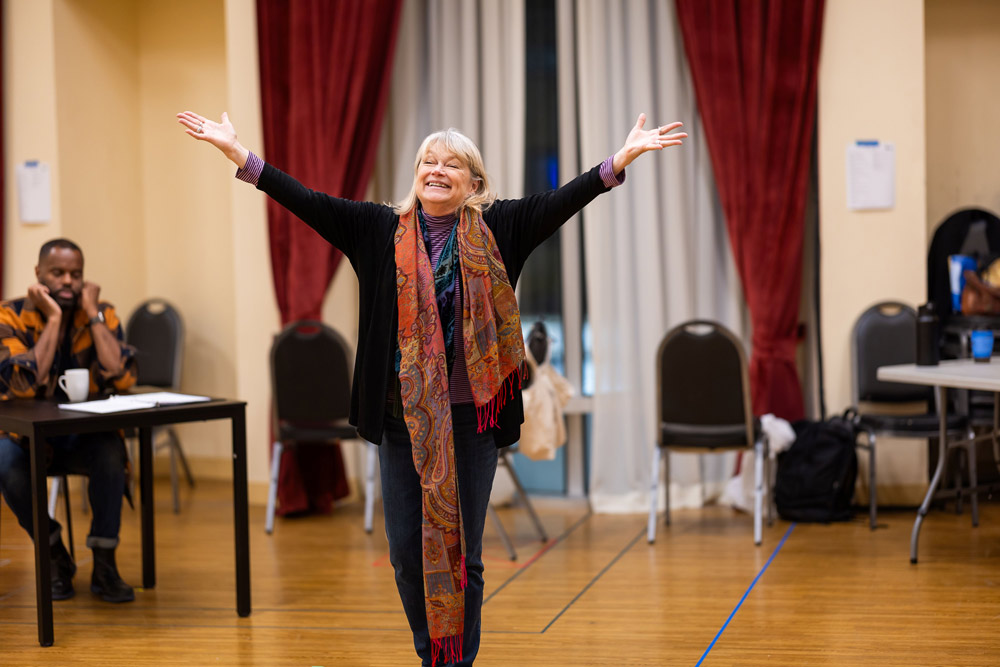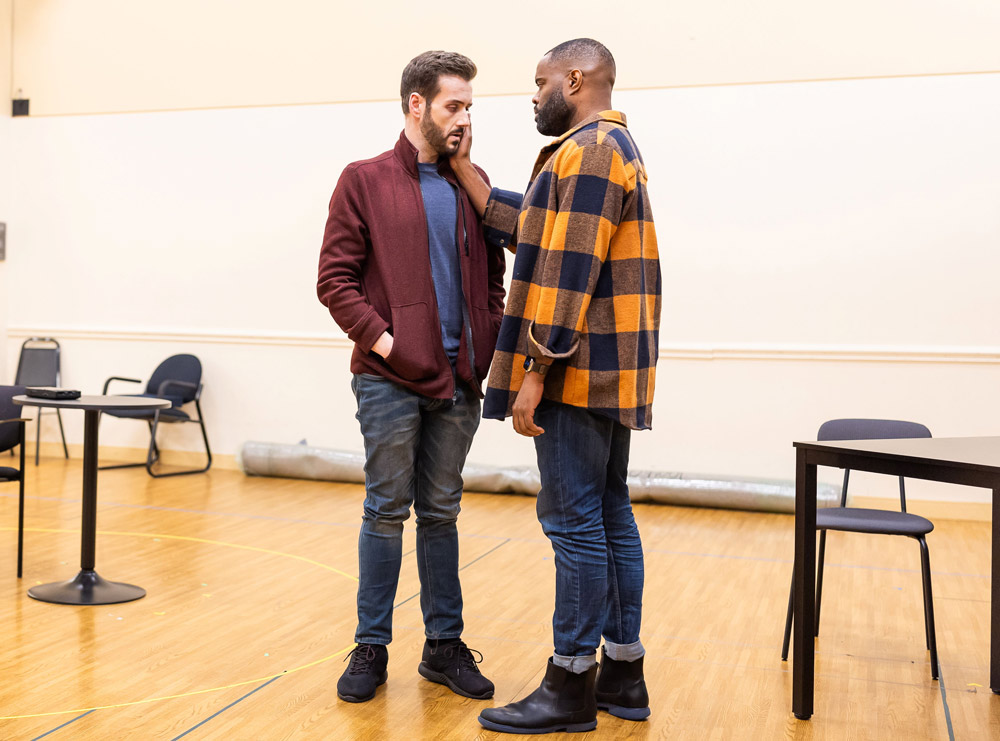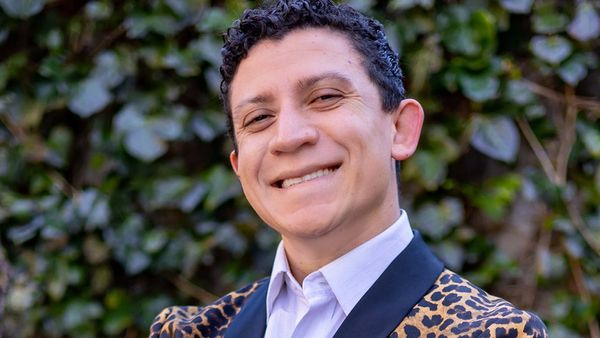Oct 16
With 'Pru Payne,' Playwright Steven Drukman Examines America's Cultural Amnesia
Kilian Melloy READ TIME: 7 MIN.

Source: Nile Scott Studios
EDGE: I love the way that you fold queer representation by making the gay characters, Thomas and Art, literally supporting roles in that they are caring for their aging parents. They've had a prior connection, which is a nice comment on how the past and the present inform and relate to each other.
Steven Drukman: Yes, and how Pru's true legacy is love. That's the lesson she learns: Life is worth living because of love. It is because of her that Thomas is allowed to reactivate the relationship he had long ago with Arthur. There's a nice symbiosis of what Thomas gets, lesson-wise, from his mother, which he had been denied his entire upbringing.
EDGE: In in writing Pru, you show how talented with words she is. That's introduced right away with her avalanches of alliteration. Did that section take you a long time to put together?
Steven Drukman: To my credit, or discredit, that stuff comes very easily to me. I live in the world of academia; I breathe that way of speaking as oxygen, and it doesn't mean people who talk like that are smarter. In fact, usually quite the opposite.
The bigger reach for me was Gus and Art. I think the true poet, the one with the real gift of language, is Gus. I find real beauty in the way Gus speaks, and this is where Pru becomes an extension of the playwright. Pru finds that there is a real wisdom in Gus and Art, but particularly Gus. I think he has a moral intelligence that none of the other characters really have.

Source: Niles Scott Studios
EDGE: You're recalling your own fond memories in your writing, aren't you?
Steven Drukman: Oh, absolutely. And this play really draws on the two sides of me, in a way that other plays do not. As you noted, I started this play in 2016; it's been a long fostering, and it's caused me to dig deeper and deeper, in a way that other plays haven't. This play was going to be produced in 2020 and, of course, [due to the pandemic], that wasn't going to happen. It forced me to dig even deeper and refine it. You have no choice but to unearth things in yourself the longer you stay with a written project.
EDGE: Is it important to you to put queer representation into your work?
Steven Drukman: I think in this particular play it was important, in that sort of singular way that I want audiences – general audiences, but particularly gay audiences – now to know what it was like in the 1980s. The shorthand that Thomas and his mother have when she says, "Are you being careful?," you know, she doesn't even have to say what it's about. It was just in the air.
My partner was Scott McPherson, who – I don't know if you know who that was, but he wrote a play called "Marvin's Room," and we were in a play together called "The Normal Heart." That's how we met; I was an actor then. I was 23 years old when I met Scott. He was HIV positive. We didn't think he was going to see 30 – he did; he died at 33, but I didn't think he would. It was just a very different mindset, and it's very important to me that audiences know this. It's something we should not forget. I'm not sure why it's a lesson we have to keep relearning. It's that cultural amnesia thing.
EDGE: It must be exciting for you that this play is being produced in Boston. Are you going to come and see it?
Steven Drukman: I am. I'm going to be there up till the first preview. Usually I disappear after the opening, but Speakeasy does it a little strange: They have their first preview, and then they have the opening later. I'm a full-time professor at NYU, so I won't be there for that, but it is thrilling to me. I mean, and I keep getting emails from family members and old friends from grade school who are all going. I've never been produced in Boston. I was produced in Lowell a few years ago, but that's not quite the same, and this is a more important play than the one that was in Lowell. That's very exciting to me, because I've been produced so much on the West coast, and a lot of my old friends and family don't get to see my plays. So yes, I'm very excited about this.
The SpeakEasy Stage Company's production of Pru Payne" will run from Oct. 18 – Nov. 16. For tickets and more information, follow this link.
Kilian Melloy serves as EDGE Media Network's Associate Arts Editor and Staff Contributor. His professional memberships include the National Lesbian & Gay Journalists Association, the Boston Online Film Critics Association, The Gay and Lesbian Entertainment Critics Association, and the Boston Theater Critics Association's Elliot Norton Awards Committee.







